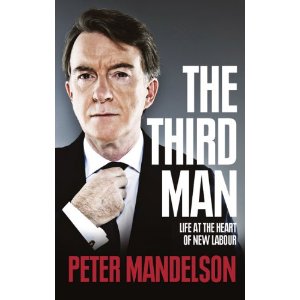
One of the strangest things about the ConDem coalition is its claim to be pragmatic rather than ideological. In fact, it may turn out to be the most ideological administration we’ve seen since the middle period of Thatcher. Peter Wilby makes the point in a terrific column in today’s Guardian.
If we want a true picture of what Cameron’s government is about, we should look at another recent recruit to the tent: Richard Thaler, a Chicago University academic who is advising a ‘behavioural insight team’. This has been dressed up as another example of Tory de-Thatcherising, enlisting compassionate, interventionist approaches to social problems. Thaler claims to be what Americans call a ‘liberal’. Cass Sunstein, another Chicago man and Thaler’s co-author on a book called Nudge, which caused much excitement when it came out in 2008, works for President Obama. But Thaler is not quite what Cameron wants you to think he is.
Nudge provides Cameron with the academic cover that Anthony Giddens, the sociologist who wrote The Third Way, provided for Blair. It claims to set out ‘the real Third Way’, implying, conveniently for Cameron, that Labour chose a false path. Markets aren’t always right, the authors argue. Because humans don’t always make rational choices, markets sometimes operate inefficiently. From this (to anyone other than a Chicago professor) rather obvious premise, Nudge proceeds to outline a philosophy of “libertarian paternalism”. The state, without direct regulation or more than minimal costs to the advantaged, can gently persuade humans to act in their own and the wider community’s interests.
Wilby points out that this libertarian paternalism bears “the same theological relationship to Friedmanite economics (Milton Friedman was also a Chicago professor) as intelligent design does to creationism. It strips out the demonstrably false aspects of the doctrine and gives it a makeover.”
After the banking crisis, the belief that markets work perfectly was as unsustainable as the belief that God created the world in 4004BC. Nudge comes to the rescue, proposing ways to make markets work better without directly interfering with them, still less penalising those who grow rich from them. It discusses not the merits of privatising social security, but the best way of doing it. It considers why Americans aren’t saving more for their retirement, without mentioning that, for the majority, real wages haven’t risen in a decade. The premise is that if people act against their own best interests – by using drugs, eating junk, failing to save or taking out loans they can’t repay – it is because of their individual behavioural flaws, not because of poverty, inequality or lack of hope.
Nudge, though written before the worst effects of the credit crunch were evident, came at a convenient moment for free-market capitalism. It argues that there’s nothing wrong with markets, only with people, and the state’s role is to make people fit for markets, not the other way about.
Just to underscore the point, the Economist (from whose print cover the image above is taken) recently had a piece arguing that the ConDems are the most radical government in the Western world. ‘Radical’ in this sense means “hell-bent on shrinking the state”. That sounds pretty ideological to me.

